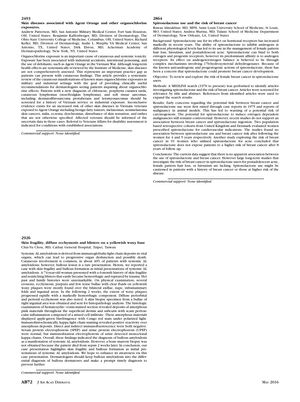Spironolactone Use and the Risk of Breast Cancer
April 2016
in “
Journal of The American Academy of Dermatology
”

TLDR Spironolactone use is not linked to an increased risk of breast cancer, but caution is advised for high-risk patients.
The document from May 2016 reviewed the potential risk of breast cancer associated with the use of spironolactone, a medication commonly used for conditions like female pattern hair loss, hirsutism, and postadolescent acne due to its anti-androgenic properties. Initial concerns about a link between spironolactone and breast cancer were based on case reports from 1975 and animal model studies suggesting a risk of carcinogenesis. However, more recent studies, including two population-based retrospective cohorts from the United Kingdom and Denmark, as well as a study of 91 women using spironolactone for acne, found no association between spironolactone use and an increased risk of breast cancer after follow-up periods of 4 to 8 years. The conclusion of the document is that current data do not support a link between spironolactone use and the development of breast cancer, but it notes that there is a lack of large, long-term studies specifically investigating this risk in spironolactone users for dermatological conditions. The document suggests caution in prescribing spironolactone to patients with a history of breast cancer or those at higher risk for the disease.




